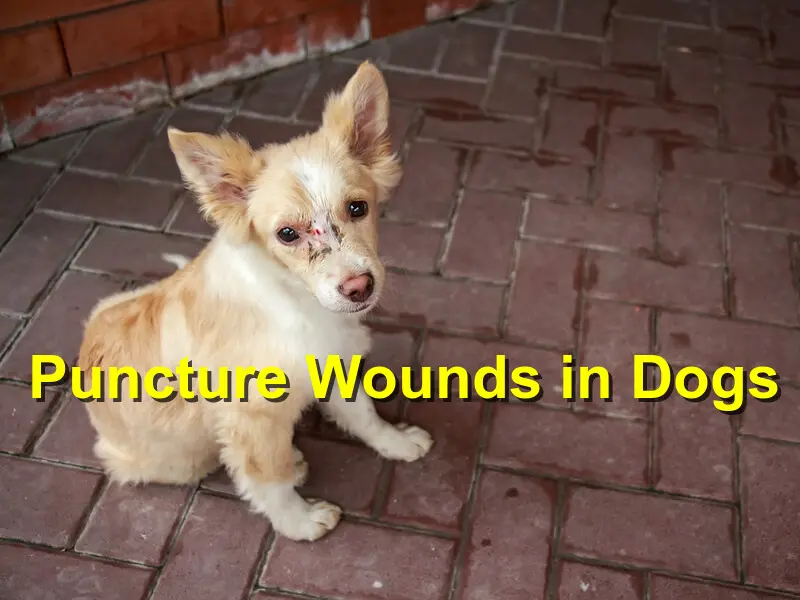Puncture wounds in Dogs
Most often, puncture wounds are varied: From stickers and splinters to gunshot wounds and animal bites. These puncture wounds can easily get infected and can cause severe skin damage if left untreated.
Causes of puncture wounds
Stickers, splinters and bites from other animals are the common causes of puncture wounds. Metal and glass wounds are common as well. Wounds caused by weapons during hunting are also common in certain states in the U.S. Grass awns and porcupine quills can also cause puncture wounds.
Immediate Care
You should only bandage the puncture wound if the chest has been affected, or if wound is bleeding profusely. Muzzle and/or restrain the dog to keep it calm. Also ensure the dog is not in too much pain, excited or panicked, as it can easily bite you. Avoid washing the puncture wound with disinfectants or antiseptics, and contact your vet immediately to test for tetanus.
Dealing with animal bites
As mentioned above, ensure the dog doesn’t harm you, as he might be panicking, excited or in pain. If the dog has a puncture wound on the chest, cover the affected area with a damp cloth and then bandage it tightly. You can check for symptoms of shock and perform CPR if need be.
If the muscle has a puncture wound, clean it with water. You should monitor the dog for symptoms of shock and try and keep your dog warm as you wait for veterinary assistance. But if the puncture wound exposes the dog’s internal organs, don’t allow your dog to lick them. Wrap the dog with a damp sheet and go to the vet immediately.
For splinters:
First you need to clean the affected area using warm water. Remove the slinter slowly using tweezers., and then wash the wound again with a disinfectant or soapy water. But for gunshot wounds, you should attend to the bleeding and immediately check for shock. To ensure you are on the safe side, take your dog to the vet immediately.
If your dog has a puncture wound, it’s always important to ensure you have done proper tests to check for tetanus. The vet can recommend an antitoxin to treat the wound. While it’s often rare in dogs, common symptoms of tetanus include:
- Paralysis
- Inability to walk or stand
- Sensitive to sound and light
- Body stiffness
Conclusion
If your dog suffers from a puncture wound, you can administer first aid as instructed above, But if the condition is severe, consult the vet immediately.
References: Petmd, VCA Hospitals, Wag walking




